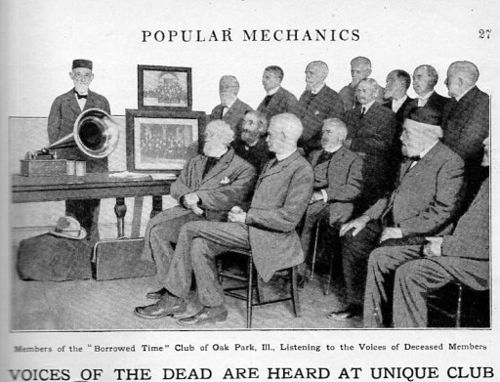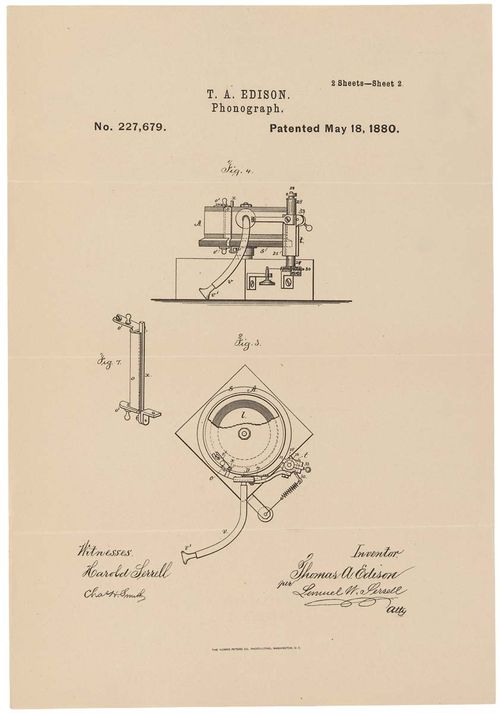JF Ptak Science Books Daily Dose from Dr. Odd

Two years ago I posted "My Zombie 'Phone to Deadville" and Tales of the Infinite Boneyard, by Tom Edison which addressed a prickly mock-interview that the great inventor gave in 1910 about the possibility of communicating/telephoning with/to the dead. On the other hand, his recording phonograph did accomplish this, in a one-way way--for the first time in human history it allowed a person to listen to the sounds of something that couldn't make sounds anymore. Dead People Talking must have been an enormous idea to those of the first few years of Edison's 1877 recordable/playable device--it still its own enormity if you stop to think about it for a moment.
This is to some degree what was in the minds of the members of the Talking-with-the-Dead Club in Chicago's Oak Park as seen in an article in the endlessly interesting Popular Mechanics (for 1912). The members of the "Borrowed Time" club really weren't so much interested in talking with the dead but rather were more consumed with the dead talking to them. On waxed cylinders. Perhaps it was a new modern miracle and a possible comfort to their own soon-to-be demise that it would be possible to reach out from the grave to have your voice heard. The club was founded in 1902, and of its 25 charter members only 10 survived in 1912. It would have been an odd conceit to join a club to sit with fellow members to listen to the voices of dead members, a strange if new insistence on corporeal attention to dead stuff. But it is a very recognizable wish--"need', even--to have your the memory of your dead self improved or at least substantiated with a recording of your years-dead voice available to the curious.
This makes me think about a telephone book for the dead--there's certainly enough material out there for one, or to at least think about organizing one. Certainly in the near future there will be millions of new dead people, and given the extent of cell phone communication and etc. this will be one of the fastest-expanding communities of potential communicants. Probably the idea of a "telephone book" for the Dearly Departed is old fashioned, especially when we can have an entire internet (the world wide dead web) devoted to them, the them that are us. This may sound trivial and snarky, but it isn't and I'm not trying to be--I'm dead serious.



Comments